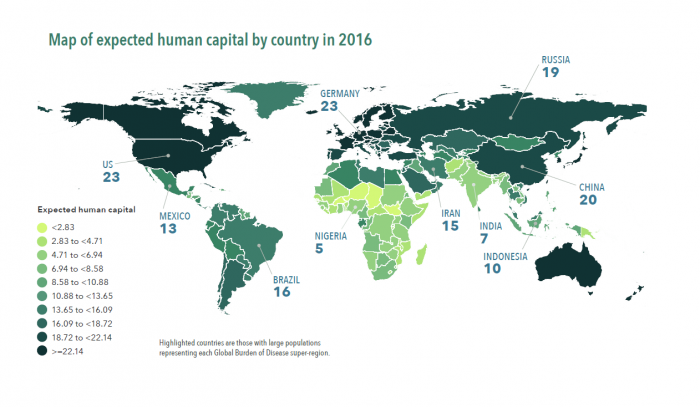Singapore performs well in human capital study

Singapore ranks 13th in the world for its investments in education and health care as measurements of its commitment to economic growth, according to the first-ever scientific study ranking countries for their levels of human capital.
The nation placed just behind Switzerland (ranked 12th) and just ahead of Japan (ranked 14th).
“Our findings show the association between investments in education and health and improved human capital and GDP – which policymakers ignore at their own peril,” said Dr. Christopher Murray, director of the Institute for Health Metrics and Evaluation (IHME) at the University of Washington.
“As the world economy grows increasingly dependent on digital technology, from agriculture to manufacturing to the service industry, human capital grows increasingly important for stimulating local and national economies.”
The World Bank President, Dr. Jim Yong Kim, defines human capital as “the sum total of a population’s health, skills, knowledge, experience, and habits.”
It is a concept that recognises that not all labor is equal, and the quality of workers can be improved by investing in them.
Singapore’s ranking of 13th in 2016 represents a major improvement from its 1990 ranking of 43rd.
It comes from having 24 years of expected human capital, measured as the number of years a person can be expected to work in the years of peak productivity, taking into account life expectancy, functional health, years of schooling, and learning.
The study, “Measuring human capital: A systematic analysis of 195 countries and territories, 1990 to 2016,” was published in the international medical journal The Lancet.
It is based on a systematic analysis of an extensive array of data from numerous sources, including government agencies, schools, and health care systems.
The study places Finland at the top. Turkey showed the most dramatic increase in human capital between 1990 and 2016; Asian countries with notable improvement include China, Thailand, Singapore, and Vietnam. All these countries have had faster economic growth over this period than peer countries with lower levels of human capital improvement.




